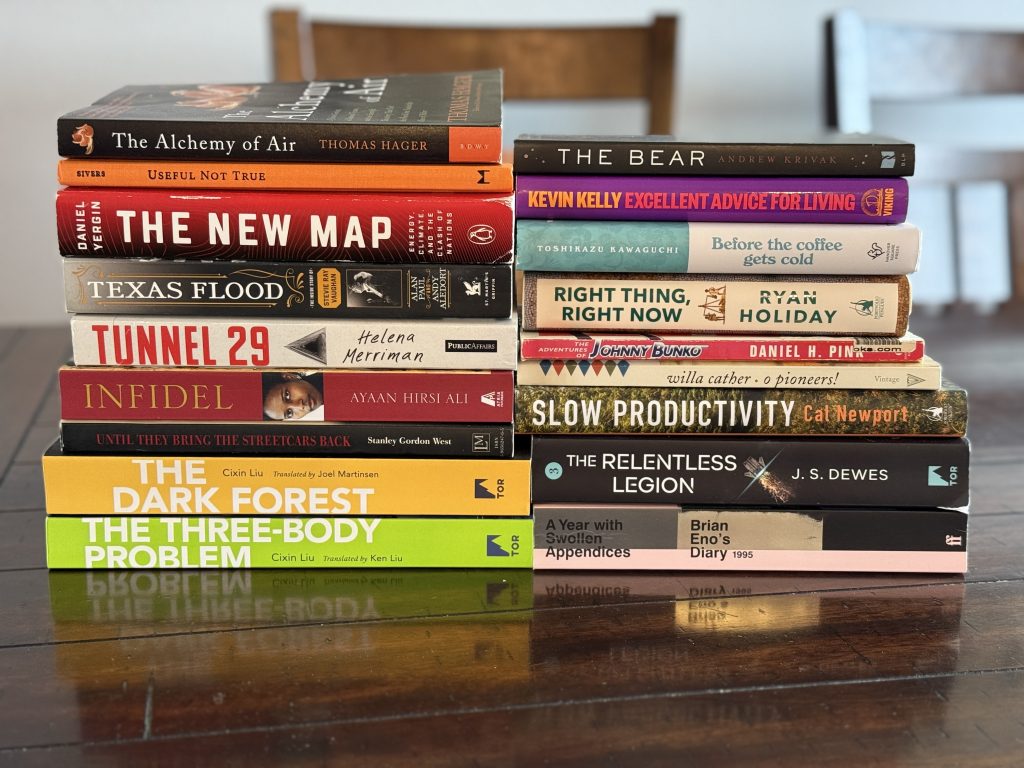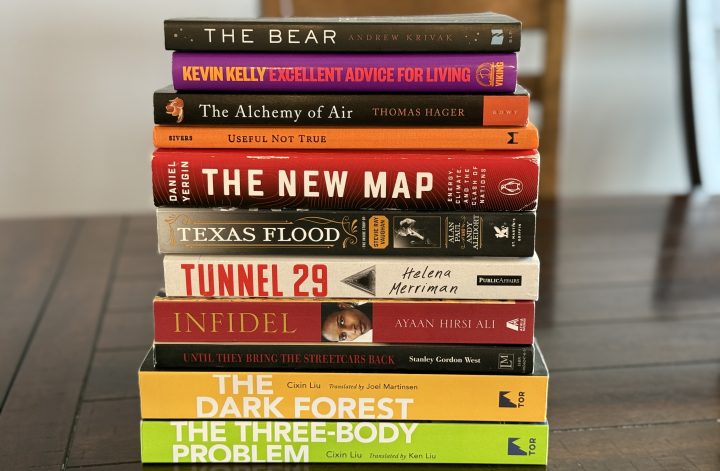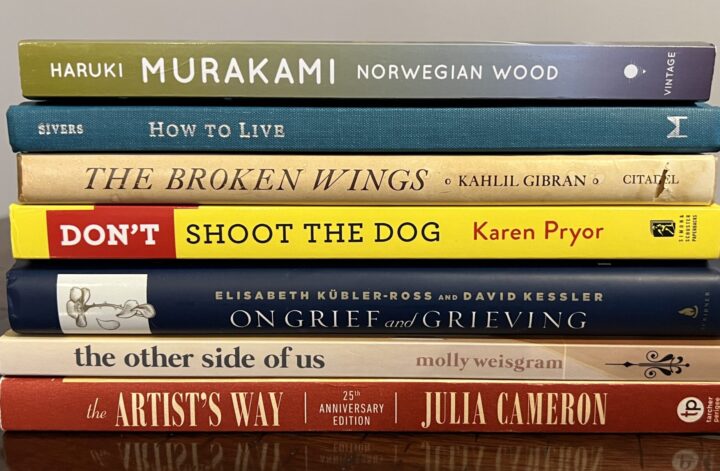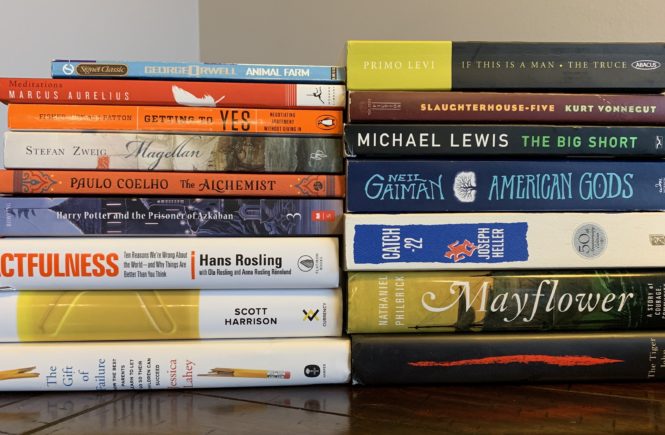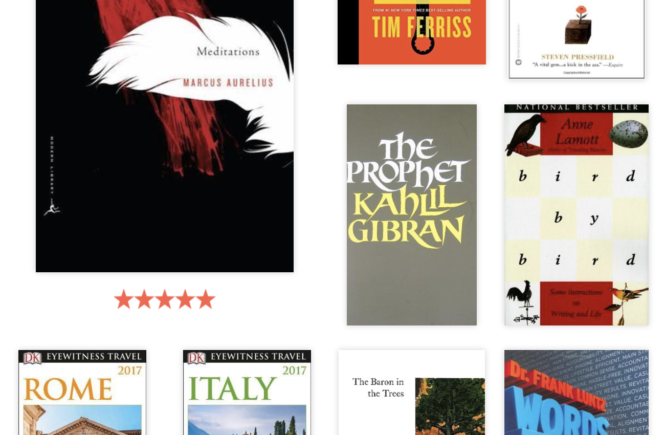I wasn’t able to find as much time to read this year, but I was still able to make it through 25 books. Here were my favorites:
The New Map: Energy, Climate, and the Clash of Nations by Daniel Yergin — My favorite read this year, it details how oil and gas development has shaped countries and politics in the modern world. On the one hand it is fascinating history. On the other, it’s a new and important lens to view world politics.
Favorite line: In the autumn of 2018, though it was hardly noted at the time, something historic occurred: The United States overtook both Russia and Saudi Arabia to regain its rank as the world’s largest oil producer, a position it had lost more than four decades earlier.
Excellent Advice for Living: Wisdom I Wish I’d Known Earlier by Kevin Kelly — This is a simple book filled with short aphorisms by the founding editor of Wired magazine. It’s a short read and one I intend to return to multiple times.
Favorite line: Too many to choose from! Here are a few…
You can’t reasons someone out of a notion they didn’t reason themselves into.
Forgiveness is accepting the apology you never get.
To earn bliss, just for a moment, send someone you don’t know a compliment for something they did.
The foundation of maturity: Just because it’s not your fault doesn’t mean it’s not your responsibility.
The Three-Body Problem and The Dark Forest by Liu Cixin — These are the first two books in Liu Cixin’s “Remembrance of Earth’s Past” trilogy, which has now been made into a Netflix series. Without creating any spoilers, it is an imaginative piece of sci-fi that brings up all sorts of interesting questions around our potential interactions with life outside this planet. The combination of sociology and physics was fun. I started the third and final book in the series yesterday.
Favorite line: In this forest, hell is other people. An eternal threat that any life that exposes its own existence will be swiftly wiped out. This is the picture of cosmic civilization. It’s the explanation for the Fermi Paradox.
Useful Not True by Derek Sivers — Every time Derek writes something, I can’t wait to read it. His latest book was no exception and did not disappoint. In it, he argues that there aren’t a lot of hard truths. This allows us to try on different beliefs or perspectives that cause us to act in our own interest. This can include how we interpret others’ actions as well. It felt like a more useful interpretation of Kahneman’s Thinking Fast and Slow.
Favorite line: Beliefs exist to guide your actions. If you’r not acting in alignment with your beliefs, you’ve missed the point of beliefs.
The Bear by Andrew Krivak — A short novel about the last two people on Earth—a father and daughter surviving on the land. I loved the focus on self-sufficiency, survival, and mourning the loss of loved ones.
Favorite line: Her father told her once that all animals were creatures of habit and so, too, were they. The difference was she could choose to change her habits. Animals changed when they were afraid. Change before fear has had a chance to overcome you, he said, or after you have overcome it and like a storm it has moved on.
The Alchemy of Air: A Jewish Genius, a Doomed Tycoon, and the Scientific Discovery that Fed the World but Fueled the Rise of Hitler by Thomas Hager — The story of the creation of the Haber-Bosch process, used today to create enough fertilizer to support half of the world’s population. Just over a century ago, natural sources of fertilizer were running out and it was clear that the world’s farmland wouldn’t be able to support the future population. Hager tells the story of the two germans that discovered and commercialized the process to create synthetic fertilizer, the end of which is tragically intertwined with the rise of Nazi Germany.
Favorite line: Today, Haber-Bosch plants produce an amount of fixed nitrogen equivalent to that produced naturally, doubling the amount available on earth.
Infidel by Ayaan Hirsi Ali — This is the autobiography of an amazing woman that was brought up as a devout muslim in the horn of Africa, escaped an arranged marriage to become a refugee in the Netherlands, and eventually served in the parliament there. It provides an eye-opening education on the upbringing that many girls go through in that part of the world.
Favorite line: If you are a Muslim girl, you disappear, until there is almost no you inside you.
Good Inside by Dr. Becky Kennedy — Dr. Becky offers a philosophy on raising kids that is different than anything else I’ve run into: our children are good inside and any bad activities or behaviors should be separated. Rather than attempting to correct with punishments and rewards, we should focus on creating better connections.
Favorite line: Our kids should not dictate our boundaries and we should not dictate their feelings.
Texas Flood: The Inside Story of Stevie Ray Vaughan by Alan Paul and Andy Aledort — SRV is one of the greatest blues guitarists of all time. He slept with his guitar while couch surfing through much of his career, not ever really worrying about money. It’s tragic that he nearly killed himself with drugs and alcohol and then died in a helicopter crash only a few years after getting sober. Throughout it all, he seemed to be a genuinely good person—perhaps providing an exception to the advice to never meet your heroes. On a similar note, I listened to Paul McCartney: The Life by Philip Norman and was proud to find out that I share a middle name with my favorite Beatle and the best songwriter of all time.
Favorite line: After he stopped doing drugs, I said to him, “You’re playing on .011s now. What happened to the big strings?” And he said, “I stopped doing cocaine, so I can’t do that anymore—I can actually feel my fingers now!”
Tunnel 29: The True Story of an Extraordinary Escape Beneath the Berlin Wall by Helena Merriman — A true story of Joachim Rudolph’s escape from East Berlin and then his attempts to help others escape. It reads like fiction while providing a great history lesson around the Berlin Wall.
Until They Bring the Streetcars Back by Stanley Gordon West — I guess this was required reading at one point in Minneapolis high schools. It’s a thriller of a novel set there in the 1940s. Once I got to the second half of the book, I had to finish it in one sitting.
